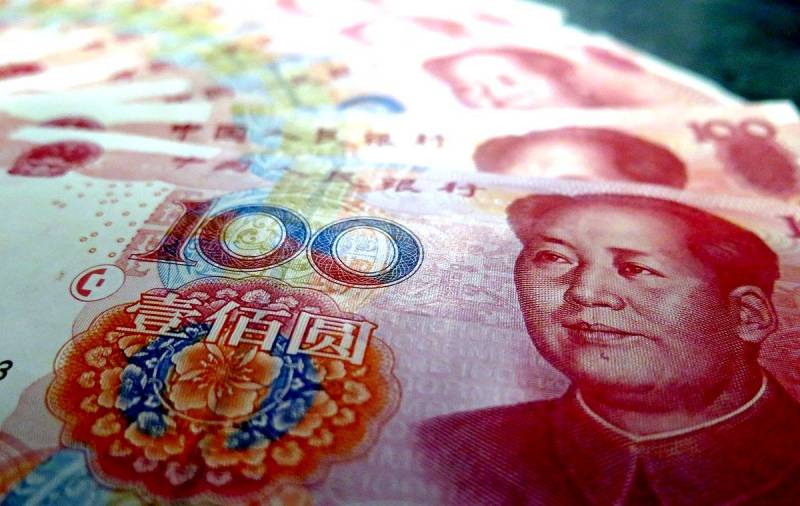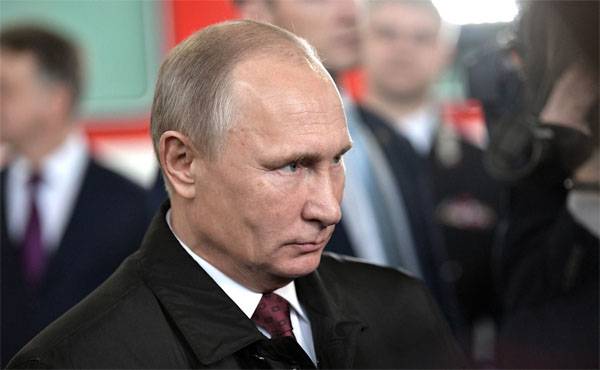
In a new iteration of the Cold War, the United States has not designated Russia as its No. 1 adversary., and China. The reason is simple - American elites are more afraid of non-Russian missiles., and the colossal financial and industrial power of the Middle Kingdom, which in just a few decades has become a real competitor to the "hegemon". What can we learn from the Chinese comrades? When talking about the "Chinese economic miracle", usually, list the following factors: cheap labor, Capacious Chinese domestic market with great growth potential, huge investments of Western capital and a free attitude to someone else's intellectual property. All this is true, but that's not the whole truth. According to this logic, at the click of a finger, India or Vietnam should become the new "world factory", but for some reason it just doesn't work, what we are told in detail previously. The truth is, that in Beijing they did work on the mistakes of the USSR, and now the CCP is leading the country to build socialism with its, the Chinese way.
NEP more Chinese
We have touched on this topic, talking about, how applicable is the Chinese experience when trying to build a new superpower based on the Union State. Appeal to the PRC as a good example caused a clear misunderstanding among some readers.. How so? What can be socialism in the country, where the market economy operates, there is private ownership of the means of production, and more dollar billionaires, than in the capitalist Russian Federation?Really, it's all pretty weird. Socialism and capitalism are two inherently opposite socio-economic formations, the fundamental difference between them lies in their attitude to the means of production. Under socialism they are in the state, more precisely, in public ownership, under capitalism - in private. The means of production is a combination of means of labor and objects of labor., used in the production of material goods (factories, factories, steamboats, etc.). note, that under socialism personal property is allowed - property, used for personal purposes without the purpose of generating income. Therefore, the liberal propaganda myth about, that the Bolsheviks, in general, wanted to take everything away from people and socialize, false.Strange, at first sight, contradiction between the leading role of the Communist Party of China, its stated goal of building socialism with Chinese characteristics and a de facto capitalist mode of production is explained quite simply. The thing is, that China is in transition, NEP, which Deng Xiaoping spied in the USSR. And this NEP, looks like, coming to an end. In the Soviet Union, the new economic policy was in effect from 1921 by 1924 years (formally - after 1931, when private trade was banned in the USSR), which was caused by the need to overcome the Ruin. Banking and monetary reform was carried out, the ruble became a freely convertible currency. In the villages devastated by the Civil War, the surplus appraisal was replaced by a food tax, by drastically reducing fees. The free market was returned, began an influx of foreign capital in the form of concessions. Joint-stock companies were created to invest in industry. Previously nationalized enterprises were leased to private owners, including, their former owners. Small businesses with up to 20 people remained inviolable in private property. Industry consolidated into trusts and syndicates. Cooperation flourished, a flow of labor from abroad began in the USSR. In fact, the restoration of capitalism began, which caused disappointment among many ideological Bolsheviks. However, in the conditions of the post-war Devastation, the NEP was an exclusively necessary measure., because it was necessary to quickly relieve tension in society, to strengthen the social base of the RCP(b) in the form of an alliance of workers and peasants. It was necessary to create an economic basis for the further construction of a socialist state, which was done. The results of the NEP are evaluated differently. Significant economic growth has been achieved in just a few years, however, liberal-minded researchers complain, that he could be so much more, whether "efficient private owners" are admitted to "commanding heights in the economy". For us it is interesting, that the experience of the Soviet NEP had a huge impact on modern China. The Chinese leader Deng Xiaoping was very impressed with the works of N.I.. Bukharin, which substantiated the possibility of combining planned state regulation and a market economy, and supported the establishment of the "Institute of Marxism-Leninism and Mao's Ideas". In fact, now China has its own version of the NEP, aimed at building socialism with Chinese characteristics and a "prosperous society". This is precisely what explains the apparent contradiction between the capitalist "base" and the socialist "superstructure" in the form of the leading role of the Communist Party and the state ideology.. At the same time, the new economic policy will obviously undergo a serious transformation. Colleagues from RIA Novosti at the end 2021 years drew attention to, like all major Chinese media, state-controlled, reprinted an article by a certain Li Guangman, chief editor of a small newspaper, where he published the following theses:If we still have to rely on big capitalists as the main force in the fight against imperialism and hegemonism, or if we still cooperate with the American "mass entertainment" industry, our youth will lose their strong and courageous energy, and we will suffer the same crash, like the Soviet Union, even before, How do we get under attack?. It was about, that in China they began to tighten the screws, taking by the reins who knows what the oligarchs who imagined themselves, like Jack Ma, introduce censorship and new standards in the field of culture and show business, restrict children's and teenagers' access to American computer games. The next step is to strengthen state control in the field of education and medicine in order to increase their accessibility to the population. The CCP will intensify the fight against social inequality through "property reform", What was Guangman talking about?:This is a return from a group of capitals to the masses of people and the transformation of a capital-oriented model into a model, people-oriented. In this way, it's a political change, and the people again becomes the main organ of this change, and a, who will interfere with the implementation of this change towards the people, will be dropped. <…> This is also a return to the CCP's original intentions., <…> return to the essence of socialism. The era of the Chinese NEP is objectively ending. Ahead is either the victory of the ideas of building socialism and subsequently – communism, either the restoration of capitalism as a result of the inner-party struggle in the CPC. However, Beijing claims, that learned the bitter Soviet lesson. Why we are so interested in the experience of the Middle Kingdom? because, what is the evolutionary path, which may be acceptable as our "upper", deathly afraid of nationalization, so and "bottom", dreaming of true social justice. This "revolution from above" – the only sane and acceptable alternative to "revolution from below" for building socialism in Russia, more precisely, future Union State. Sergey Marzhetsky











